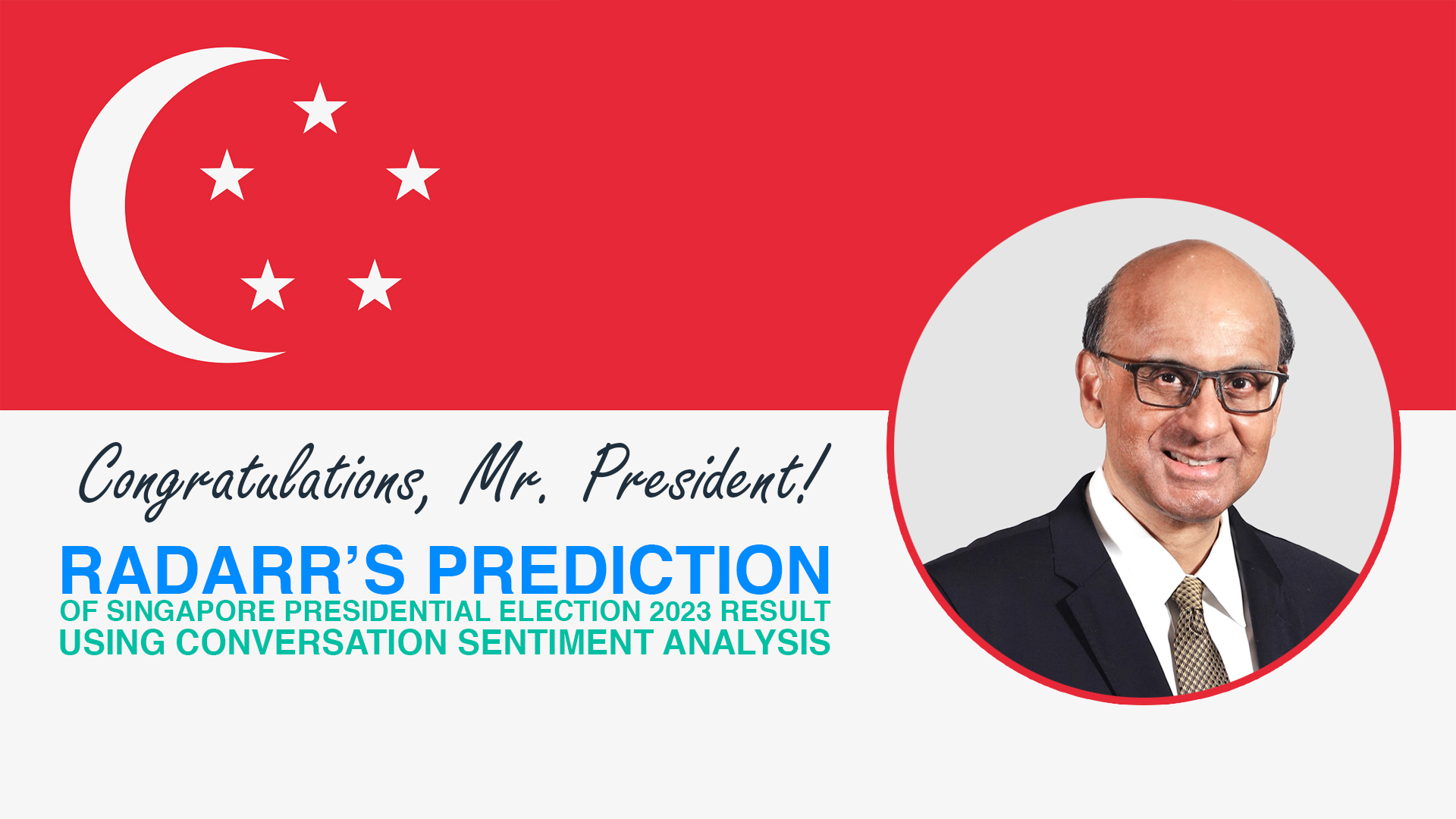The 2023 Singapore Presidential Election had three major candidates competing for the presidency: Tharman Shanmugaratnam, Tan Kin Lian, and Ng Kok Song. Social media was abuzz with discussion about the candidates in the weeks leading up to the election. Radarr, a social media sentiment analysis tool, was used to track this discussion and identify key trends.
Radarr’s analysis showed that Tharman Shanmugaratnam had a significant amount of positive sentiment on social media, which was unsurprising given his reputation as a former minister and a safe pair of hands. However, positive sentiment towards Tan Kin Lian was also growing due to his strong performance in televised debates and perceived independence from the ruling party.
Based on its social media sentiment analysis, Radarr predicted that Tharman Shanmugaratnam would win the election by a wide margin. This prediction proved correct, as Tharman Shanmugaratnam won the election with 70.4% of the vote.
The accurate prediction of the Singapore Presidential Election outcome by Radarr demonstrates the power of social media sentiment analysis in predicting election results. In addition to election prediction, social media sentiment analysis can be used for various purposes like identifying customer sentiment, tracking brand reputation, measuring marketing campaign effectiveness, and predicting new product or service success.
As social media continues to grow in popularity, social media sentiment analysis is becoming increasingly crucial for businesses and organizations. By tracking social media conversations, businesses can gain valuable insights into their customers’ and stakeholders’ opinions and attitudes. This information can be used to improve products and services, develop new marketing campaigns, and make better strategic decisions.
Radarr was able to predict the Singapore Presidential Election results accurately due to its use of various factors, including the number of positive and negative mentions, the tone of the language used, and the sentiment of the user’s social network. Additionally, Radarr is constantly learning and adapting to keep up with the latest social media trends. It is also unbiased, which means that the users’ political affiliations do not influence it.
Radarr’s analysis involved collecting data from various social media platforms, filtering the data to remove irrelevant or spam content, identifying all mentions of the three candidates, categorizing each mention as positive, negative, or neutral, and calculating the overall sentiment for each candidate.
Social media sentiment analysis is not infallible despite being a powerful tool for predicting election results. Social media users may not always be honest about their opinions, and social media sentiment can be manipulated by bots or trolls. The results of social media sentiment analysis can also be affected by the sample size and the analysis period.












